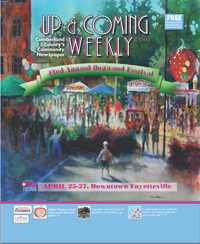 If you are reading this column, I suspect you are a longtime reader of many publications and books — someone who reads because an idea piques your interest, to be amused, to be informed, perhaps even to be provoked by a thought or an event.
If you are reading this column, I suspect you are a longtime reader of many publications and books — someone who reads because an idea piques your interest, to be amused, to be informed, perhaps even to be provoked by a thought or an event.
You read because doing so enlarges your world and takes you places you will likely never go in reality. You read to learn. I will go further out on this speculative ledge and say you have probably read since you were a child, as have I.
That is why as a person whose mother routinely caught her reading by flashlight under the bed covers and later a mother who caught her own daughter doing the same, I am horrified, saddened and frightened by a recent National Assessment of Educational Progress report.
NAEP found that only 14% of U.S. students read for pleasure daily. Let that sink in a moment. It means that 86% — nearly 9 in 10 — of our young people do not find enough pleasure in reading to do so on a regular basis.
The numbers have plummeted in recent years, down three points from 2020 and a full 13 points since 2012.
This dismal finding comes on top of an acknowledged crisis in classroom test scores zooming in the wrong direction, likely escalated by COVID and interruptions in classroom instruction.
There are probably as many reasons for the decline in classroom performance as there are children who do not read for pleasure. American family life is complicated and busy with many and attractive diversions for parents and children. Layer on technology and social media, both seductive and massive time wasters. Common Sense Media reported that most children have a phone by 14-years-old, and last year Stanford
Medicine reported that age is now 11.
In addition, both parents and educators fear children are not being introduced to books that interest them, a critical element in the process of both teaching them to read competently and turning them into lifelong and devoted readers.
A smaller factor but a factor nonetheless are parents calling for book bans of publications they dislike, find inappropriate, or offend their political sensibilities. More than 1500 books had been removed from classrooms and school libraries across the nation at the outset of this school year, as reported by PEN America, a free-speech organization.
As with so much else in life, parents are the first line of defense for their children. We love them more than anyone else, care more about their futures, and want them to lead productive and happy lives. Experts tell us that most children enjoy reading — or being read to — until they are about 9, when technology becomes important to them.
It seems reasonable and prudent that parents both limit screen time and make reading materials easily available. This can be done either at home or through visits to the local library where children can select books that interest them and perhaps join age-appropriate reading groups.
To this day, I remember how much I loved the blue-bound biographies of famous people available in the library at the long-gone Haymount Elementary School on Hay Street.
My own three Precious Jewels, now adults and readers all, are on their own, and I have two more Precious Jewels — my grand babies. I doubt you will be surprised to learn that my reaction to news of the decline in childhood reading was to order three new “Little Mole” books to read to the 3-year-old. He is already interested in the alphabet and numbers and the little one, three months, can listen in from her bassinet. It is never too early to start reading.

 How to resolve AdBlock issue?
How to resolve AdBlock issue? 









